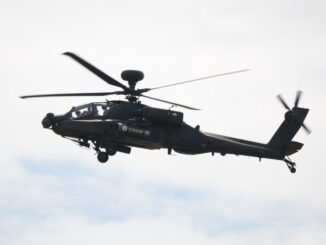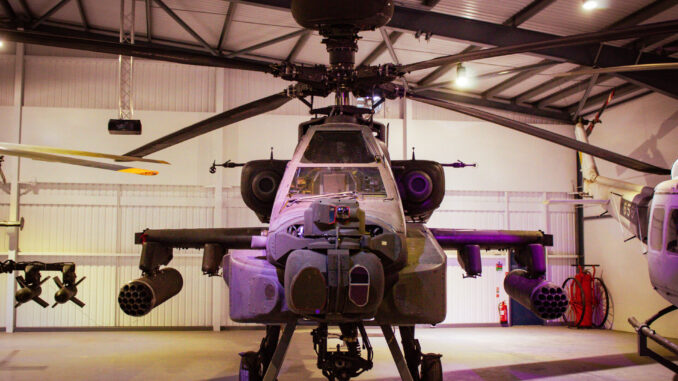
The Army Flying Museum at Middle Wallop, Hampshire has had its latest exhibit, An Apache AH Mk1 officially unveiled by His Majesty King Charles III today as he visited the site to handover the Army Air Corp Colonel-in-Chief role to his son, Prince William.
HM King Charles III visited the museum meeting staff and unveiling a plaque to commemorate the occasion next to the aircraft which is the only example on display in a museum in Europe.
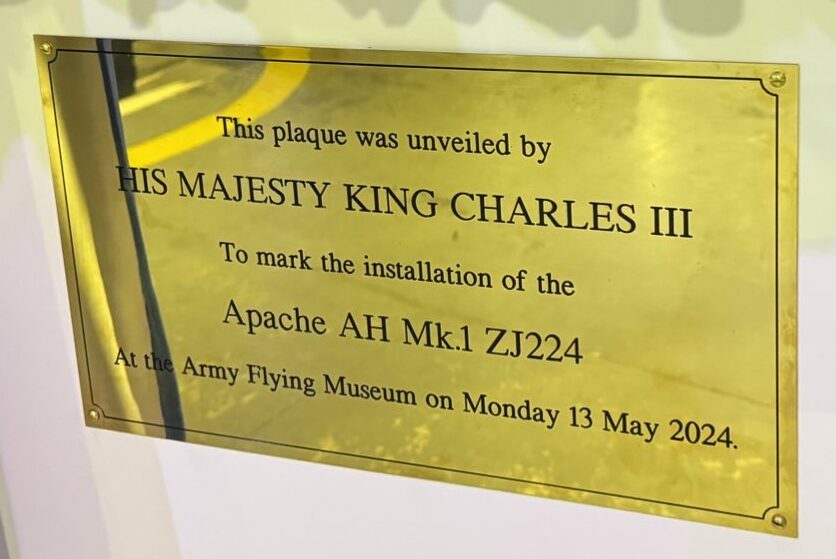
The Apache AH Mk1 attack helicopter was the mainstay of the Army Air Corp since its inception in 2001 until its retirement this year, being replaced by the newer and more advanced Boeing Apache AH64E.
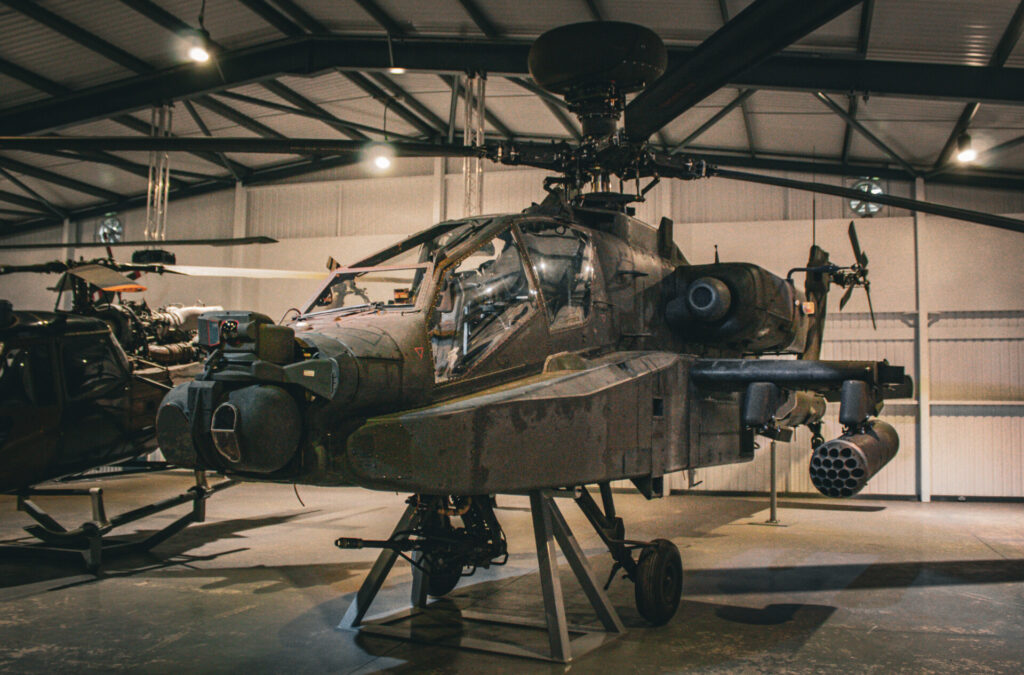
Apache AH Mk1’s were the based on the Boeing Apache AH64D but were built under licence by Augusta Westland in Yeovil.
Fitted with the Longbow radar, the Apache was a formidable battlefield weapon able to find and attack targets with pinpoint accuracy using either its M230 chain gun, Wing mounted Hellfire missiles or CRV7 Rockets.
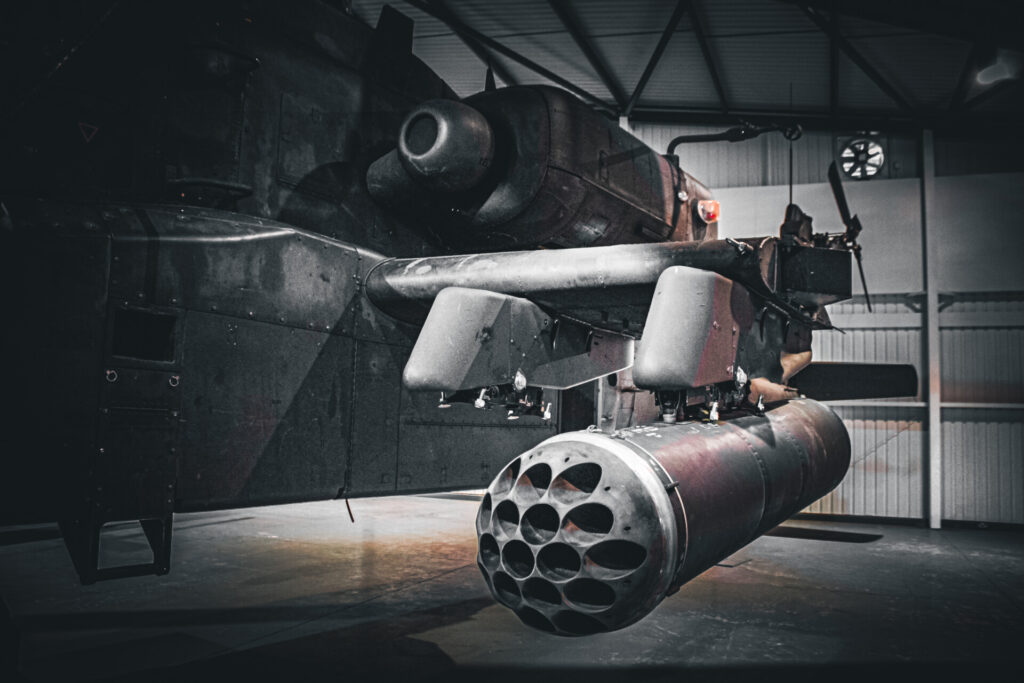
It saw active service in Afghanistan, where it was flown during two tours by Prince Harry as well as in Libya operating from HMS Ocean.
Apache’s are operated by a two-man crew with one pilot flying the aircraft and the other controlling the weapons.
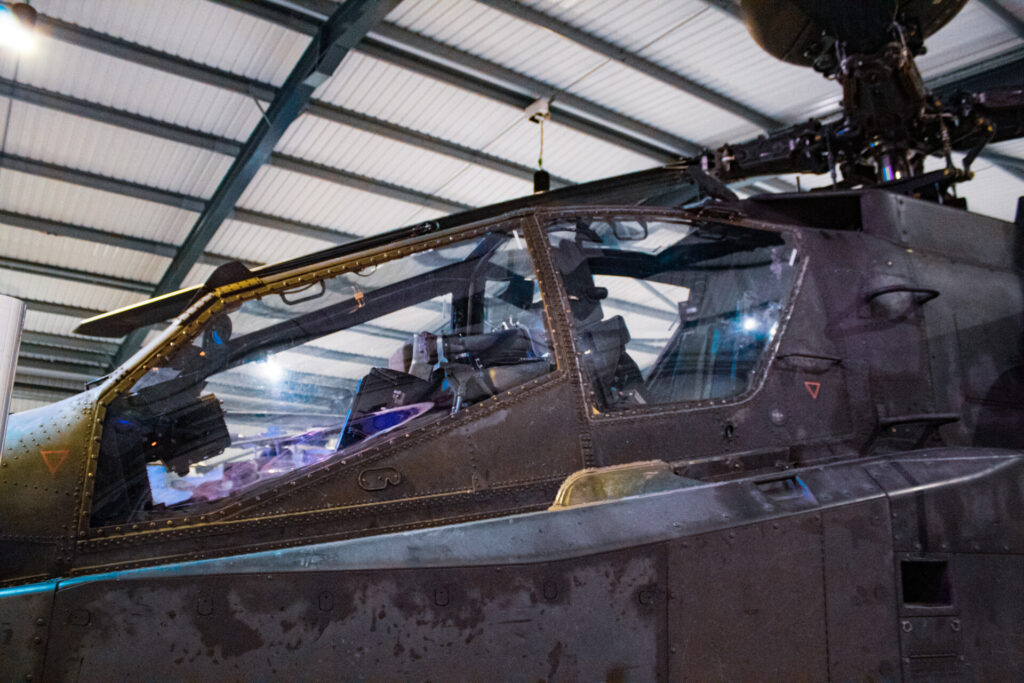
The example on display at the Army Flying Museum is ZJ224 which served with 656 Squadron Army Air Corps in Afghanistan. This aircraft was involved in the dramatic rescue attempt of a fatally injured soldier from Jugroom Fort Helmand Province. During the rescue attempt troops were carried on the stub wings of the Apache.
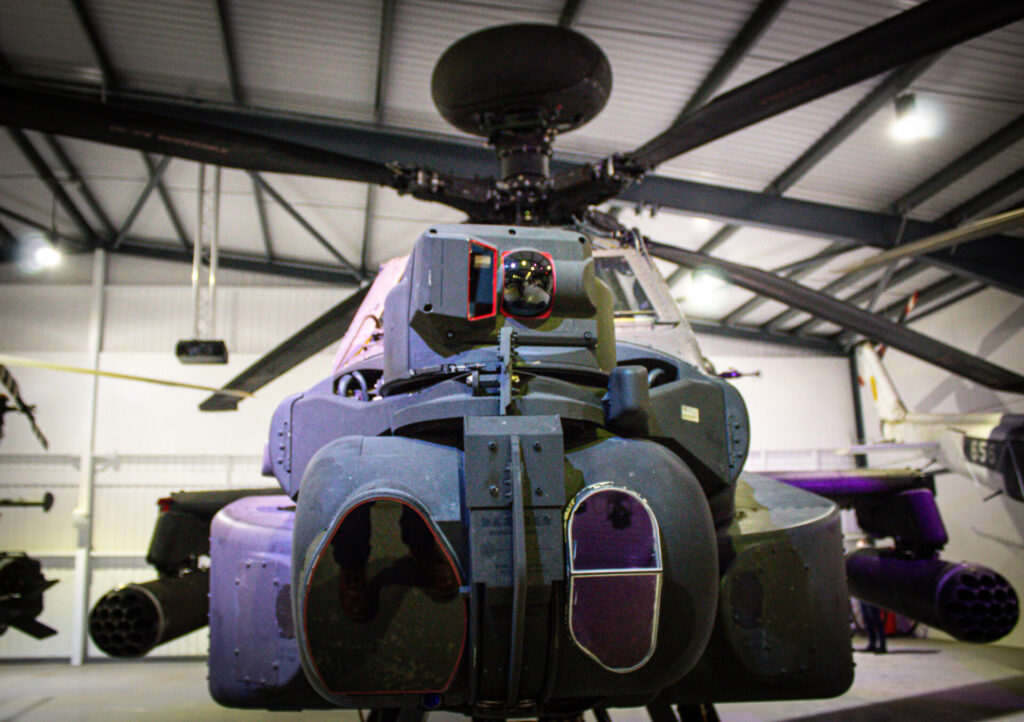
Lucy Johnson, Chief Executive of Army Flying Museum, explained that the process of getting the Apache for display in the museum began with application 12 years ago but it wasn’t until 6 months ago they knew they would be getting the aircraft on display today.
The aircraft was brought by road from Wattisham before being assembled and positioned into the Museum.
As well as the new Apache display, the Army Flying Museum holds many other aircraft from the history of Army Flying including a Sopwith Pup and a Lynx Helicopter that broke the world speed record in 1972 by achieving an average speed of 199.92 miles per hour.

The museum covers all the branches of Army Aviation including The Royal Engineers (1878 – 1912), The Royal Flying Corps (1912-1918), Air Observation Post Squadrons (1941 – 1957), the Glider Pilot Regiment (1942 – 1957) and the Army Air Corps (from 1957).

If you want to visit the museum and see the only Apache AH Mk1 on display in Europe then it is open 7 days a week except Christmas from 0900 to 16:00. The Apache Cafe, with views overlooking the airfield is open from 09:00 to 15:30 7 days a week except Christmas.
Tickets in advance cost just £17 for adults (£20 on the door) and £10 for children 5-15 (£13 on the door), under 5’s go free and your ticket allows you to revisit as often as you want for the next 12 months (excluding special events).
For more information visit armyflying.com


